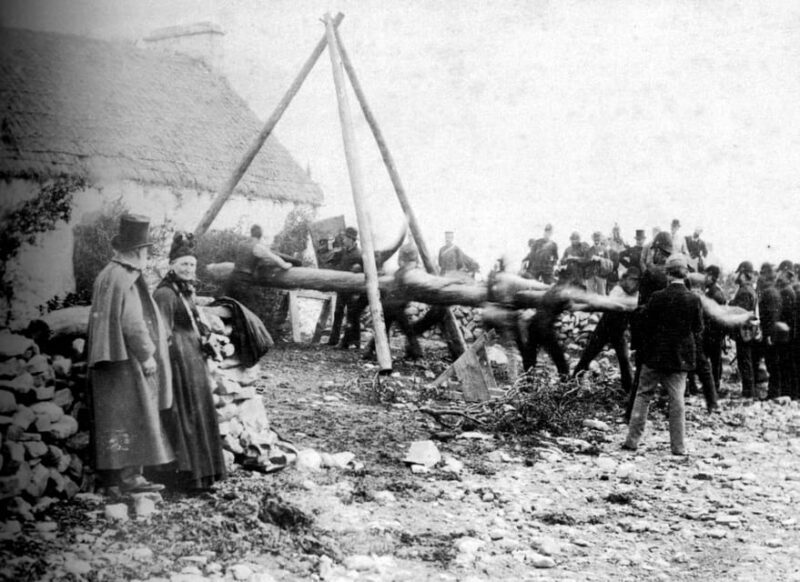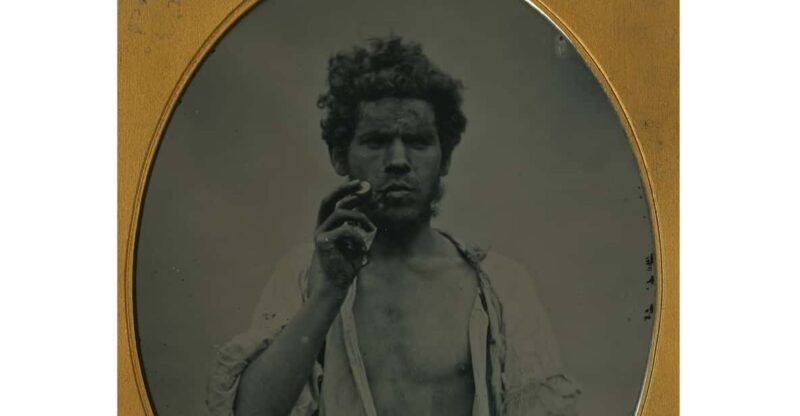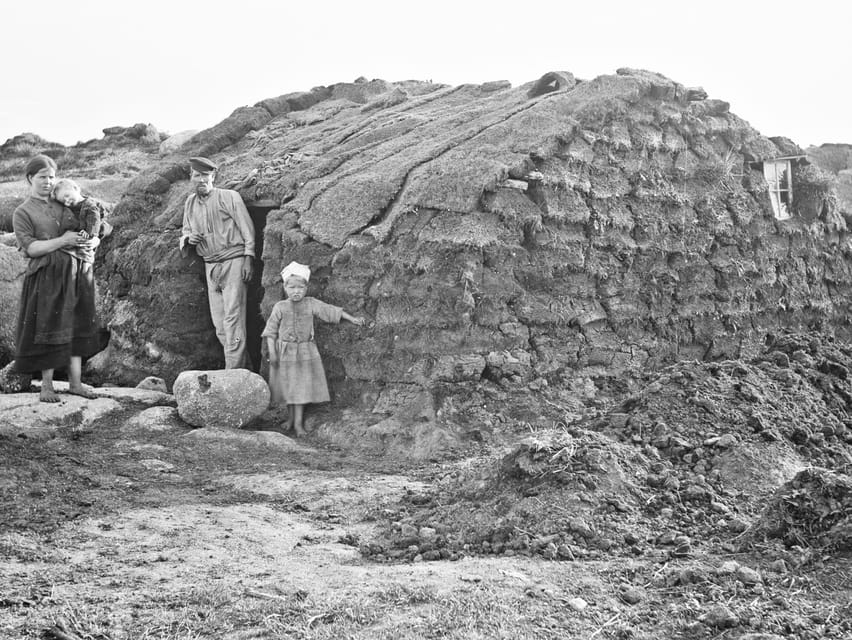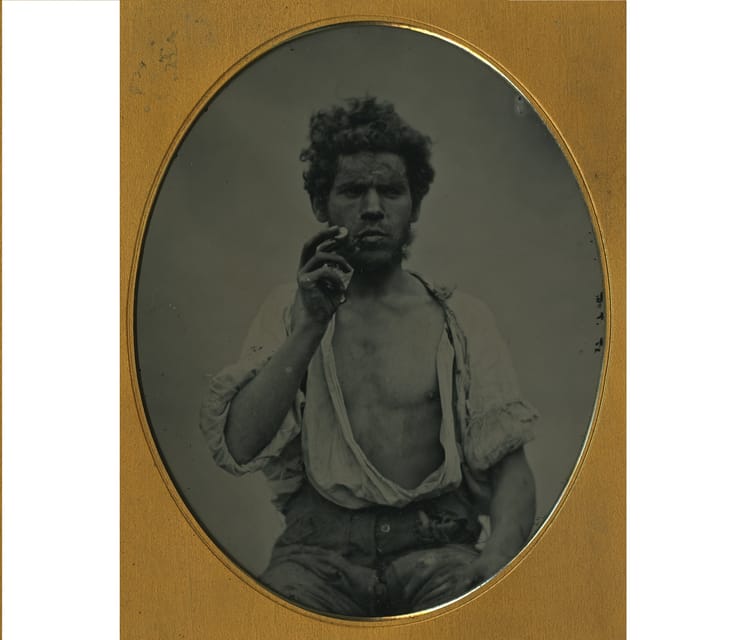Our review of the Irish Famine Exhibition in Dublin offers a close look at one of Ireland’s most pivotal and tragic episodes. This entry ticket experience, priced at $16, provides an accessible and respectful way to understand the famine’s impact, beyond the usual tourist sights. Whether you’re a history buff or simply curious about Ireland’s complex past, this exhibit offers a well-organized, immersive look at the event that forever changed the nation.
What we particularly like about this experience is its concise storytelling—it covers the core facts in about an hour, making it perfect for travelers with tight schedules. We also appreciate the mix of visual storytelling, personal artifacts, and films, which make the history both tangible and relatable. One potential drawback? The exhibit is quite focused on the famine’s human stories and artifacts, so if you’re looking for a broader historical overview of Ireland, you might want to combine it with other visits.
This tour is best suited for those with an interest in Irish history, social justice, or cultural memory, as well as travelers who want an authentic, educational experience that adds depth to their trip. It’s a quiet, contemplative activity that challenges visitors to think about a dark chapter in Ireland’s past and its lasting effects.
Key Points

- Deep insight into the Irish Potato Famine and its devastating consequences
- Authentic artifacts such as personal letters, newspapers, and original artifacts like a cast iron soup pot
- Well-organized storytelling in storyboards and films, making complex history accessible
- Affordable price point at $16, offering good value for an hour-long, educational experience
- Accessible location within Stephens Green Shopping Centre, with easy access via elevator and proximity to Grafton Street
- Available translations in four languages, making it more inclusive
An In-Depth Look at What This Experience Offers

Visiting the Irish Famine Exhibition in Dublin provides a sobering but essential look at a period that shaped modern Ireland. Located on the 2nd floor of Stephens Green Shopping Centre, the exhibition is easy to reach—simply take the elevator from the main entrance off Grafton Street or from the car park. Once inside, you’re guided through a series of rooms featuring storyboards, films, and artifacts that explain what really happened during the famine years.
You can also read our reviews of more tours and experiences in Dublin.
What to Expect During Your Visit
The exhibition is designed for a self-guided experience, allowing you to move at your own pace. It’s recommended to allocate at least one hour, but you could spend longer if you wish to linger over details or absorb the stories more deeply. The main room features storyboards with clear, chronological information that walks you through the famine’s causes, effects, and aftermath. Each room offers seating, including a 15-minute overview film that sets the stage for understanding this tragic event.
The Artifacts and Visuals That Speak Volumes
One of the most poignant features is the collection of rare 19th-century photographs of Ireland, which help you visualize the conditions and environments of the time. Two original newspaper articles are displayed, offering firsthand accounts of the catastrophe, and personal letters—such as one from a tenant to his landlord and another from a father to his son—bring a human face to the suffering. Visitors will also see a cast iron soup pot, a stark reminder of the basic survival tools of the era.
Educational and Emotional Impact
The exhibit does not shy away from the darker aspects—such as workhouse horrors, evictions, coffin ships, and disease—laying bare the suffering endured by countless Irish families. We loved the way the storyboards break down complex causes into easy-to-understand steps, making it suitable for visitors without prior knowledge. As one reviewer noted, the exhibit is “concise” but delivers “a good amount of information”, which speaks to its balanced approach.
More Great Tours NearbyAdditional Offerings and Practical Details
At the reception desk, you can purchase a book or USB stick that expands on the exhibit’s stories, with film-animated storyboards and mood music—perfect for those wanting to relive or share what they’ve learned. The exhibition is wheelchair accessible and open daily from 12 pm to 6 pm, with flexible booking options. You can reserve your ticket up to 180 days in advance and cancel with full refund if needed—adding convenience and peace of mind.
- Dublin Jameson Distillery Tour With Whiskey Tastings & Cocktail
- The Original Award Winning Wild Wicklow Tour Incl. Glendalough
- Dublin Irish Whiskey Museum and Gallery Guided Tour With Tasting
- Dublin Book of Kells, Castle and Molly Malone Statue Guided Tour
- Dublin Hop-On Hop-Off Bus Tour With Guide and Little Museum Entry
- Dublin to Glendalough, Wicklow and Kilkenny Full Day Guided Tour
Is It Worth the Price?
At $16, this exhibit offers solid value, especially considering the quality and depth of the artifacts and storytelling. For just over an hour, you gain a nuanced understanding of a pivotal moment in Irish history that often gets glossed over in broader tourist narratives. Visitors have praised the clarity and the emotional resonance of the display, with some describing it as “well done” and “very instructive”.
Why This Exhibition Is a Must-Visit

This exhibit is especially meaningful for travelers who want their trip to Ireland to be more than just sightseeing—who seek to understand the history and human stories behind the landscapes. It’s a perfect stop for those interested in social history, or anyone wanting to reflect on resilience in the face of adversity. It’s quiet, contemplative, and respectful—an experience that can deepen your appreciation for Ireland’s modern identity.
Who Should Consider Visiting?

- History enthusiasts eager to explore Ireland’s past in more detail
- Travelers seeking authentic, educational experiences away from the tourist crowds
- Those interested in social justice or humanitarian history
- Visitors with limited time who prefer a focused, meaningful activity
- People who appreciate well-curated artifacts and visual storytelling
Final Thoughts: The Value for Curious Travelers
The Irish Famine Exhibition offers a respectful, well-organized, and emotionally impactful look into a dark chapter of Ireland’s past. Its high-quality artifacts, compelling storyboards, and concise format make it an excellent choice for anyone wanting to understand the real story behind the famine. At a modest price, it provides an accessible way to broaden your perspective and deepen your connection to Ireland’s history.
While it’s not a comprehensive history lesson, it complements other sightseeing experiences perfectly, adding a layer of understanding that enriches your entire trip. The quiet, reflective atmosphere makes it suitable for those who appreciate a thoughtful, educational experience over flashy attractions.
In the end, this exhibit is a poignant reminder of resilience and suffering, making it a worthwhile stop for travelers who value authenticity and depth in their journey. If you’re in Dublin and want to understand a defining moment in Irish history, this is one experience you won’t regret.
FAQs
Is the Irish Famine Exhibition suitable for all ages?
Yes. The exhibit is designed to be clear and accessible, making it appropriate for most visitors, including families.
How long does the visit usually take?
Most visitors spend about an hour exploring the storyboards, films, and artifacts.
Can I visit the exhibition more than once?
Your ticket is valid for 180 days, so you can return if you wish to revisit or review the material.
Is the exhibition wheelchair accessible?
Yes, it is wheelchair accessible, located on the second floor of Stephens Green Shopping Centre.
Are there translations available?
Yes, translation manuals are available in French, German, Italian, and French, making it more inclusive.
What is included in the ticket price?
Entry to the Irish Famine Exhibition and the translation manual. The book and USB stick are sold separately.
Can I cancel my reservation?
Yes, you can cancel up to 24 hours in advance for a full refund, offering flexible planning.
Is there a recommended time of day to visit?
The exhibition is open daily from 12 pm to 6 pm; visiting earlier or later within those hours can help avoid crowds.
How accessible is the location?
It’s easy to access via elevator from the main entrance or car park, situated conveniently near Grafton Street.
Will I see original artifacts?
Yes. The exhibit features original 19th-century photographs, newspaper articles, personal letters, and a cast iron soup pot.
More Museum Experiences in Dublin
More Tickets in Dublin
More Tour Reviews in Dublin
- Newgrange Passage Tomb & Ancients Irish Sites.
- From Dublin: Wicklow, Glendalough, Waterfall & Sheepdog Demo
- Dublin: Irish Dinner & Dance Show at Johnnie Foxs
- Dublin: Personal Photographer- Travel Photography Experience
- Ultimate Guinness, Whiskey & Gin Irish Trilogy Experience
- Dublin: Small Group Walking Tour includes Temple Bar
Not for you? Here's more nearby things to do in Dublin we have reviewed
- Newgrange Passage Tomb & Ancients Irish Sites.
- From Dublin: Wicklow, Glendalough, Waterfall & Sheepdog Demo
- Dublin: Irish Dinner & Dance Show at Johnnie Foxs
- Dublin: Personal Photographer- Travel Photography Experience
- Ultimate Guinness, Whiskey & Gin Irish Trilogy Experience
- Dublin: Small Group Walking Tour includes Temple Bar
- Gravedigger Ghost Tour in + City 24hr Sightseeing Dublin
- Dublin: Trinity College, Castle, Guinness and Whiskey Tour
- Dublin True Crime Walking Tour
- Dublin: Irish Whiskey Museum Whiskey Cocktail Masterclass
- Dublin Zoo: Skip-the-Line Tickets with Private Transfers
- Dublin: Leprechaun Museum, Irish storytelling and Folklore
